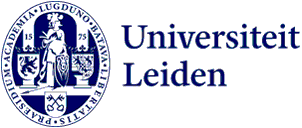
‘The complex puzzle of housing and urban development makes this work so fascinating’
Chris Suijker, since 1 July the new director of Real Estate, likes healthy and sustainable university buildings where you ‘get the feeling you’re right at the heart of society’. Her aim is to achieve the same effect with even more buildings.
What do you mean by healthy buildings and ‘at the heart of society’?
‘For some buildings, that hustle and bustle meet you as soon as you come in the door. You feel the place buzzing with the ideas of students and staff who are going to improve our future. You get that “wow” feeling particularly through the possibilities that a building offers people to meet up with one another. At the same time, a building also has to provide the calm environment needed to work and study effectively. What I mean by “healthy buildings” is that they have to have a lot of daylight and good air quality, but also that they are attractive places where you feel good and at home.’
‘You get a “wow” feeling particularly through the possibilities that a building offers people to meet up with one another’
And what do you mean by sustainable?
‘First of all there are the legal measures, which I fully support. We have spent too long exhausting the world’s resources. In the coming years we face the challenge of making our buildings so sustainable that we have a climate-neutral campus by 2050. We need to do a lot more besides saving energy. We have ambitions in the field of biodiversity within area development and for circularity in how we construct and renovate buildings. We are exploring what we can achieve here without being out of step in terms of costs. For instance, we are working on a coherent biodiversity plan for the entire Leiden Bio Science Park. And with the renovation of the Herta Mohr building, we have done a baseline measurement in terms of circularity as a starting point for future renovations. The sustainability task becomes even more challenging now that the university’s finances are under pressure. I hope everyone will contribute their own thoughts on energy reduction and making really good use of the spaces we have.‘
What is needed to achieve these aims?
‘Solution-oriented thinking and looking together for creative outcomes is very important. Luckily I’ve already experienced this in my time as an architect in the first fifteen years of my working life, but also in my previous work at the Real Estate directorate as programme manager for the Humanities Campus. What I really appreciate about my colleagues at Real Estate is that they all have these traits. When a particular task changes, everyone is prepared to be flexible and adjust their plans to get the job done. Construction is such a complex issue that you have to look for solutions together.’
What make construction so complex?
‘It’s always been complex, but that complexity is increasing as a result of sustainability requirements, staff shortages, and changing rules and laws, and rising costs. And technically too a lot more things are possible. That often sounds attractive, but in practice it‘s so complex that you can’t find the people who can operate and maintain the technology. There are a lot of fields of tension and societal issues that have an effect on the university, with such developments as the government wanting to allow access to fewer international students. That has an immediate effect on our housing plans. It’s a complex puzzle, but that’s what makes it so fascinating!’
’Construction is such a complex issue that you have to look for solutions together.’
How would you describe your leadership style?
‘I think it’s important to really listen and to pay attention to people, so I hope I do that, within our Real Estate department and within the university. The change from I to we with the new GROW programme really suits me. Thinking further than your own tasks, being aware of what is going on with the people around you and what they need, what you can mean to your immediate colleague, your team, or, even more broadly, the university or society.’
Are there other things you think are important for the coming years?
‘I think it’s a big responsibility that, with the Real Estate department, we’re not only working on suitable premises for the university, but are building on a part of Leiden that will benefit the whole region. Development on the Leiden Bio Science Park is in full swing. That will generate activity, employment and whole new residential areas, as well as strengthening knowledge exchange. There are all kinds of innovations going on there to which we have contributed indirectly. This new environment is also the result of intensive cooperation. That’s wonderful, isn’t it?’
